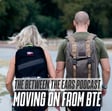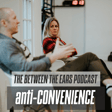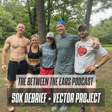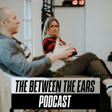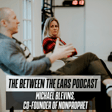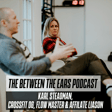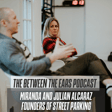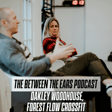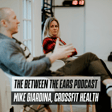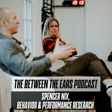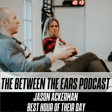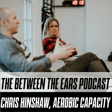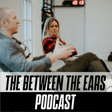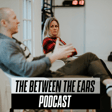Become a Creator today!Start creating today - Share your story with the world!
Start for free
00:00:00
00:00:01

Coaching and Training from a place of Curiosity
K and Bill return to the podcast with a casual and conversational approach to sharing with you the stuff they find themselves talking about, thinking about, being challenged by, and exploring.
This chat is not about teaching anyone anything, but sharing personal experiences about coaching and training from a place of curiosity.
Transcript
00:00:00
Speaker
Hello. Hello. Okay.
Season Focus: Personal Conversations
00:00:04
Speaker
Okay. Back with the new season. Back with the new season. We loved having guests, but we're going to go back to just you and I for a bit. Um, I think it's interesting that we can have some of the discussions on here that we enjoy having, you know,
00:00:23
Speaker
in the privacy of our home or during the day. Because I think we have some really good chats and they're valuable. And a lot of it's just for the people that are curious and want to explore and dive into different topics. And so I think we do a good job of that. So that's kind of our intention for this season.
Exploring Fitness and Mental Health
00:00:47
Speaker
Yeah, we thought maybe it could be a informal capturing what we're chatting about, what's interesting, what's challenging us, what we're doing, but all kind of housed under the fitness, mental health, curiosity, being students, learning, teaching, just kind of the life experience thing. It is kind of funny how many conversations, well, funny is probably not the accurate word, but we talk a lot about
00:01:18
Speaker
what we do and how we're doing it. And it is tough to articulate that or push that out without any mega media department push or through social media.
Social Media and Content Creation
00:01:36
Speaker
We try to, but we also try to in a manner that's
00:01:40
Speaker
not adding to the dysfunctional consumption of social media. We got to get your attention. We got to, you know, whatever. Social media is not a place for discussing things or to learn really. It's consumption. You go on social media to consume. So we're
4x4x48 Event Experience
00:02:04
Speaker
here. So we just did the four by four by 48 at our place. That was really cool.
00:02:09
Speaker
You trained for that. You did the intro plan for that. How'd it go for you? Well, last year it's kind of cool because I have a comparison. You love comparison. I sure do.
00:02:25
Speaker
Um, last year I did the four by four here and I did not train. I mean, I'm, I'm never that far away from running. It's not like I've really had many times in the last call it five years where I'm like, Oh, wow. I haven't run at all. Hasn't been that long. Have you been pretty consistent? I thought maybe I liked to run. So it's like, I just didn't think you were like that consistent, but you'll go like months where you're like, Oh yeah, I haven't ran. I don't go that long.
00:02:54
Speaker
you know, I enjoy running. So last year, I think I did it having run like maybe once a week, you know, something like that. So it wasn't like I was coming off of a full hiatus of running. Um, and then this year I did the, it was like about nine to 10 weeks of preparation. So two to three times a week. You didn't miss a single session. I did miss a couple of track ones, but I didn't miss that.
00:03:19
Speaker
hitting a run. So if I missed a speed session, there was a run. So I was like, so there was a speed session, a distance. It was basically too long and slow, not long and slow, but two, two steady pace days and one speed day. And the steady pace days went in three week increments. So three weeks of single
00:03:46
Speaker
one session and then it ramped up to two in a day and then it ramped up to three in a day because we're training to run multiple times. So anyway, um, from a physical and peace and all of that, it definitely felt better this time. Uh, last time I remember having a lot more like high ups and or low lows and not very many highs. And this time there was really only
00:04:15
Speaker
maybe one kind of low and it was really more sleep. I think the sleep this time got me more. Meaning you didn't sleep much this time? Yeah. I think because last time I was just kind of by myself and I would come home, lay on the couch. I didn't have any other... I don't know. The weather was better last time too.
00:04:39
Speaker
The weather was better. We had some weather stuff this time. But anyway, overall, just awesome experience. And I will say, for me, from a training, physical, fitness side, I was really proud that Monday felt good. Could run 48 miles.
00:05:00
Speaker
We finished Sunday afternoon. So finished an afternoon, yeah, completely functional, made dinner, like did all the things Monday back to work felt good Tuesday. We did a workout, you know, and I think that's really like my, I was saying to you today, my shift from for a long time, a lot was like aesthetics driven or, um, yeah, maybe not as wide in my,
00:05:29
Speaker
capabilities. It wasn't as, and it's really cool that it's like, wow, I'm capable of that. It's interesting that you say aesthetic driven because you spent so much time in CrossFit where earlier on especially it was championed as not anti aesthetics, but that wasn't the priority.
Evolving CrossFit Goals
00:05:48
Speaker
And especially from my perspective, from a male's perspective,
00:05:54
Speaker
It was very empowering. It was very female. Yeah. Empowering and ability-based and to the point where it's just like, holy shit, I hope one day, you know, I could be like one of those girls. And you also say, you know, why didn't your abilities and you look across and you went from really not being an athlete, right? You weren't a traditional athlete to then doing a slops and rope climbs and Olympic lifts. And yet now in this position, in this point,
00:06:23
Speaker
having gotten away from all across it all the time, it sounds, what I'm hearing is you have improvements in de-emphasizing the aesthetic and embracing and experiencing a more expansive range of physical capability. Yeah, and I think...
00:06:48
Speaker
I think that's, um, I think those things are true about CrossFit. Um, I think some of it, you know, has to be said, that's my personal journey. Like before CrossFit I struggled with body issues. So that was like kind of my, my journey. And yes, when I found CrossFit, it was nice that there was a less emphasis on that. But I think as far as, um,
00:07:21
Speaker
that experience, I think as much as CrossFit can be those things, and whatever we're calling it, pure CrossFit, the original, unfortunately, it gets away from them. And it becomes this narrowing experience. So. What's the narrowing experience in your opinion? As far as, let's just take something more simple, like the range of ability.
00:07:50
Speaker
back in the day, people would show up and run a 5K. Now they don't do that. And I know we've said that multiple times on here, but when you look at most gyms, and this is kind of one of our things, one, most gyms are doing 12 to 15 minute, they're doing the same workout all the time, which is a rotation of movements and it's always the same. So this notion that like, yes, games athletes have done a triathlon
00:08:14
Speaker
day one of the games and then proceeded on with all kinds of things for the rest of the time. So from a pure CrossFit perspective, yes, it should have a pretty broad spectrum. I don't think that's what's happening anymore. So people who are currently maybe doing pure CrossFit are not maybe getting
00:08:41
Speaker
that range. Like we did a workout today, you and I. What do you mean people that are doing Pure CrossFit? People that are going to an affiliate. Okay. So Pure has now changed. Right. I'm sorry. People who are going to an affiliate and doing what CrossFit is today, I don't think are getting the full range. Meaning Pure CrossFit? Yeah. Meaning old school CrossFit, the way it was intended to be the ends of the spectrum.
00:09:04
Speaker
Um, you know, you and I did a workout today and we actually did it at CrossFit during open gym. It was like over an hour and it was just like from, and I was thinking about it during it that it was like super valuable. It was a great workout for us to do today. Totally. Especially after getting my ass kicked. Yes. Thank you. But that would never, that workout and the intention to not go crazy hard would never fly in a gym. And it kind of brings us to,
00:09:34
Speaker
And so then the aesthetic thing actually, I think ties into that because it becomes like that intensity and that, I don't want to say scarcity, but there's this like intensity. Um, I don't know. Like if you don't go hard, then this identity, it's all this very, I don't even know what the right word is. Survival type mentality. I don't think that.
00:10:03
Speaker
lends itself well for, if you're doing that every day, the state of like, I know for me when I do, I'll speak for myself because I've had this even within the last couple of years when I kind of had a period where I got back to doing a lot more CrossFit type workouts, let's say more than two a week.
00:10:25
Speaker
I immediately felt worse about myself in terms of my body composition. Like my perception of myself was worse. I was more stressed out about how I looked. I felt stressed.
Emotional Impact of Workouts
00:10:37
Speaker
And so it's not that crazy to think, Oh, you're doing super stressful workouts that are in this sort of like desperation. Oh my God, I got to survive this thing kind of feeling.
00:10:51
Speaker
Like that's stressful. It's creating this sort of, I'm not good enough feeling, which then maybe, you know, spills over into like how you perceive yourself. I don't know, physiologically, it's like elevating cortisol and you're getting bloated, but I felt that lack of like a, not a great sense of self when I did those workouts. So.
00:11:16
Speaker
Yeah, I remember vividly and bringing this up to you a few months ago. Yeah, and I didn't want to hear it. Right. Of course. How many times would you say you
00:11:29
Speaker
It just takes me a while to accept things. Yeah. What are you talking about? How many strikes is it? I don't know. I feel like you're the kind of person, the animal, it's like strike one, strike two, strike three, and the umpire would be like, you're out. And she's like, no, I got eight strikes. I think it is.
00:11:51
Speaker
There's like a delay. It's just a delay. It's like you, you say like the wave crashing on the beach and then there's like a wave like makes its way up the beach. It takes me a little bit, but at any rate. But that was noticeable. That was noticeable. But again though, I think what's fascinating about it and where it's like, man, we learned so much and we basically the most, basically the more you learn,
00:12:13
Speaker
I asked my dad this because I remember hearing this story as a kid and, you know, we just saw him this weekend. I was like, Hey dad, tell me again, what did you write on your application to your PhD program? He's like, the thing he was like, yeah, I wrote that the only thing I learned in my undergraduate was that the more I learned, the less I actually know.
00:12:39
Speaker
And it was like, he's like, it was like one sentence. I'm like, damn, first of all, that's kind of ballsy. Second of all, that's so true. And that's why I'm fascinated about learning too. And you talk about ethos in bed or whatever, but like, it's fascinating to me that the association I think was part of the issue. Maybe you were doing more CrossFit workouts.
00:13:05
Speaker
but that doesn't necessarily mean you were doing harder workouts. No, it was the type of workout. It was like a type of workout. It was like an experience, but that didn't mean it was, Oh, you were doing level 10 intensity because we have an engaged workout, which is, I would say like if we were to program engaged workouts at an affiliate, people probably want to income. That would probably be one of the lower attended days because it was like, it would be like, what do you mean?
00:13:34
Speaker
Yeah, only three rounds because it's meant to be like a friend situation. Yeah, it's like a friend thing. And so, but you, so you're doing, you were still doing high intensity in some areas, but the style type, the experience, like that was very interesting to me. Even the movements, the rep schemes, it was like, Hey, you know, it was that, um, yeah.
00:13:58
Speaker
And that was, that was then sort of like, and you're, I noticed, you know, you're, you definitely struggled. Like you had it, you had it. Yeah. There was an emotional, uh, are you still running? Are you still doing cardio? Where did that kind of fall off? I don't know. I mean, it has to go back and look, I mean, obviously we have years and years in our spreadsheets, but anyway, kind of the segue there though is I do think,
00:14:26
Speaker
Well, we don't even just think. There is, with all movements, there is a experience. It's not just how you move to the body and what intensity it was. And that is kind of what we're saying. And we have this ethos seminar. We've had multiple iterations of ethos. Yeah.
00:14:52
Speaker
And I think it's cool because we've sort of continued to evolve it. And what's the most helpful, approachable, practical way to go about this? And wanting to learn what people need as well, getting feedback and seeing how it goes.
00:15:17
Speaker
But the whole premise of that is understanding what we're talking about, that level of the human and the system beyond simply it's a burpee, it's a chest press, it's a strength day, it's a long run. And it's kind of always surprising that at this point in the industry, with as much of the fitness industry that's out there and all the coaching things and the experience, nobody's really talking about that.
00:15:46
Speaker
Well, I disagree. I agree, but disagree. I agree that people aren't talking about it. What I'm seeing is now it's going towards it's the AI, it's data, it's the whoop score, it's the garment, it's your sleep, it's your aura ring, it's the wearable technology, which is saying, hey,
00:16:14
Speaker
but the technology is not going to tell you, Hey, I'm having a really hard time right now in my life. Like I'm struggling. I'm not, I'm not, I think, you know, AI, it's kind of, I was working actually like this doodling about like AI, artificial intelligence, like, but what about like AI, like actual intelligence and the actual human intelligence, actualized intelligence,
00:16:41
Speaker
Yeah, there's no data for that. And this is like, even in terms of people who, and this is slightly a little bit of a boomerang, but people who get some sort of medical thing. A medical thing? Medical information, data. Okay, hey, there's something in your blood, there's this, there's that. Yeah. Tumor, cancer, et cetera. It's not so absolute.
00:17:08
Speaker
what happens as a result of that, depending upon someone's experience with that interpretation of what they think it means, engage. And it's not to say like, oh, you can just walk on water and manifest that everything's fine. Yeah, just kind of bypass everything. But it's not so obvious. To your point, in the fitness space, or mostly
00:17:36
Speaker
in the CrossFit industry space. You said we did this workout today that likely would not fly at a traditional affiliate.
00:17:55
Speaker
This isn't to beat up on affiliates because we were owners for one for awhile. And it's like, Hey, if people aren't going to come to this or if people are going to complain about this. Sure.
Curiosity in Fitness
00:18:02
Speaker
It's a business. Yeah, it's a business. Like, got it. So you can beat the drum of no, no, no, but this and people are like, I don't care. Give me my, give me my head. But the intention was not to do the thing as fast as possible. In fact, the intention was to finish it saying like you could do it again.
00:18:20
Speaker
We do that here between the years. We've been doing that for a while. We tried to implement that at Morristown years ago, but there's still that resistance. Well, I think about today, we didn't even start a clock. If you didn't start a clock on a workout in most CrossFit gyms, that would be unacceptable.
00:18:45
Speaker
I mean, even when we stop taking people's scores at the end of the class, people lost their mind. And it's kind of like, what is that about? And I think that all it does is ask a question. And I think we owe it to getting better to be curious. Like, OK, what is that about? And I was, for a long time when I did stop kind of looking at the clock or using the clock,
00:19:09
Speaker
there was still this automatic thing to look for the clock. Or even today, I was like, I wonder how long that took. So I'm not judging people for it. I'm just saying, isn't anybody curious about that? Are we not curious about what that's about? But to the human part, we have people that we have a culture here and a size class. We have a coach here who coaches at both CrossFit and Between the Ears. And in one of his recent
00:19:39
Speaker
AARs, reports after the class he taught for us, he was commenting that different people came in that day with different things going on in their life.
00:19:53
Speaker
And we had a discussion about it because the reality is the structure of maybe a CrossFit class or a class that's got 15 people in it or that culture, that wouldn't really work to kind of touch base with all those people on like what they have going on. Right. And then adjust accordingly. So we're clear on that. And I think, you know, we, you and I have said like, Oh, if we were to have to take over a CrossFit gym now, like how would we,
00:20:20
Speaker
force ourselves to implement some of this stuff. And I think what it does come down to is we're not saying, now, hey, CrossFit gyms, change your model, have five-person classes. But the bridge there is to teach people why that matters, that Sally is coming in like, hey, if you're coming in and your parent is
00:20:44
Speaker
in, you know, having a, is on their death bed or is struggling and you're now taking care of them and there's emotional stuff. And that, yeah, like that's gonna, that should inform maybe how you're showing up in the gym, what's appropriate so that you can like do life. So really it's giving people as a coach, you're giving people
00:21:07
Speaker
that ability to like navigate what that means for their workout.
Coaching and Mental Health
00:21:11
Speaker
No different than as we've talked about, if you broke your foot, people have no problem coming in and being like, Hey, I broke my foot. What's that mean today for we're doing box jumps. I can't do a box jump. Cool. Then we're going to, and we've gotten very used to that. And that's like a no brainer. We're saying we're in a place where like mental health is like a thing and we all accept it.
00:21:35
Speaker
but I am not seeing that that's really been accepted or, you know, accounted for yet in fitness. Yeah. And I don't think, and we've had lots of conversations with people and it's like the question of scope always comes up. Sure. And it's like, we are not saying that this is therapy. We are not saying that this is going to be the cure all for mental health. Like a lot of people are like a lot of,
00:22:05
Speaker
people especially on social media that say lifting weights is the best for anxiety. It's like, okay, by the way, buy my product. You know what I mean? But we're also, that's no different than to use a very similar thing. Coaches have no problem
00:22:27
Speaker
maybe giving someone a stretch or saying, hey, why don't we work around this injury? That doesn't mean that they're PTs. So no different than that. A PT is needed for certain things, and you can work around an issue in the gym appropriately within your scope for other things. No different with mental health. A mental health professional is needed for certain things, but understanding
00:22:50
Speaker
maybe where you're at in that day with your life and your emotional state and your mental wellness, that's still appropriate for the scope of fitness because it does influence your physiology. So with that, we've shifted ethos to be one day instead of two. We dive into
00:23:16
Speaker
psychological tolerances are model for training, psychological tolerances, not to replicate what we do here. Cause somebody could be like, Oh, okay. I'm going to buy your equipment. I'm going to do it. You guys, we're not teaching people how to open a between the ears. Right. But teaching language so that you can speak and communicate with your people. And we've said before that,
00:23:46
Speaker
One of the things we do really well here is we coach humans, not body parts. And perhaps as a newer coach, it makes sense to where you coach body parts. Okay. This is the knee. This is the hip. So the elbows, the shoulder.
00:24:07
Speaker
Very, very rough, very crude, like just patterns and movement and stuff like that. And you know, no fault to anybody. You got to start somewhere. But at a certain point, the progression of, all right, you've told the person, move your body part this way, that way, thousands of times. Right. Yeah. Maybe it works. Maybe it doesn't work. What would it be like if you didn't have to tell them that?
00:24:37
Speaker
Well, I also think that in even in itself teaching people what that line is, because at a certain point someone knew coming in, like being told all the things they're doing wrong. I mean, we've talked about that. Like, is this for the person or is it for you as the coach? Because really great coaches can identify a lot of things that might be able to be better about how that person's moving. Yeah.
00:25:05
Speaker
how many of them in this moment are necessary and which one am I going to pick and what's my rapport with the person so that they don't leave feeling like shit about themselves you know and that's so I think this like constant emphasis on being great with your cues and
00:25:26
Speaker
kind of sexy with how you run the class. And we've talked about this as well. I think that's more for the coach than the person. And I'm not saying it's not important to know how to correctly help someone get into the right position so they don't hurt themselves. But there's also a whole other conversation, which we don't have to get into.
Narratives in Fitness
00:25:48
Speaker
If the person's really not moving very well and they have some limitations, then there should be also like a question about what movements they're doing, how much loading they're doing. Like they shouldn't ever be in a position where they're actually going to hurt themselves. So that's a whole other thing. Well, and the psychological component of it, if we just can classify that as the story you tell yourself, the mindset,
00:26:14
Speaker
We don't like that one, but like, okay, from a psychological perspective, the narrative, the story going on between your ears, whatever. How is that talked about? What's done about it? And where is that coming from? Where is your, so you can understand maybe
00:26:40
Speaker
movement stuff. You can understand, all right, some anatomy, maybe some West side stuff, whatever you pick a coach and conditioning. How about the psychological component? What are your interventions? And when by intervention, meaning when you say something to someone, that's an intervention, if you're going to intervene from the psychological component,
00:27:07
Speaker
where are you learning your intervention from? Or is it like that post I put up a while back, or is it just Nike therapy of just fucking do it? And it's like, okay, right. However, no. A certain point, which isn't that far away, it's gonna be like, yeah, no thanks. Somebody being told they can't be how they're being today. No, no, no, you can do it.
00:27:34
Speaker
Or on the other end, somebody who might want to go a little bit heavier and, you know, somebody who might want to use a heavier wall ball, like is a great example where it's like, well, just go faster. Just go on broken. It's like, yeah, but what's the significance? So anyway, that is not touched other than referring to it. So what we've done is say, okay, well,
00:28:00
Speaker
over the past year, few, you know, after years of this developing, not a system to replicate, but, um, language to learn and implement and then share. And ultimately if a coach does not want to be curious, if a coach does not want to be a student of their craft and like, okay, right on, that's fine. Um, but it is, you know, it is kind of like, I guess it's just funny to me
00:28:31
Speaker
that people, and I think there's tons of value to sort of the specialty things. Like there's a gymnastics course and people can dig into that more. But a lot of those courses, let's say like, let's take Olympic lifting and gymnastics. They're very specific and gymnastics does a great job of like breaking down certain things and okay, the keeping pull up, the muscle up, things that people want to get better at handstands.
00:29:01
Speaker
Olympic lifting, you know, but they're very specific. And when you apply that to like the masses, there's not, you know, out of the, you know, our gym, our affiliate, you know, how many people have a muscle up are going to have the ability safely to get a muscle up who care about a muscle up. It's a pretty small percentage.
00:29:24
Speaker
Same thing with Olympic lifting. To really be good at Olympic lifting, it's a lot of reps and boring. I mean, most people don't really want to nor do they need to do that. But people will go and coaches will learn this stuff to add to their repertoire to help people. But when you look at people in their everyday lives,
00:29:50
Speaker
the challenges they face, the ups and downs of emotions. They're just like normal, like being a human. That's everybody.
Balancing Mental and Physical Health
00:29:58
Speaker
So it is kind of boggling and maybe it's part of this and I don't know. Continuing to try to share what we do is a challenge, but like this is something that can be applied to all humans who are coming in the gym because everybody has the experience of life. No one gets away with just
00:30:22
Speaker
non-issues in their life. And so the so what of helping people with that is because yes, and this is something I think I've said many times to people in conversation, it's no question that you could be having your whole life could be a mess and you could be really stressed out the 23 hours of your life that are outside the gym and it could be bad. You can always go and like
00:30:52
Speaker
rally for a hard workout. The body can do that. It's not like your body's going to stop you, like if you had a broken leg. Eventually it will. Eventually it will. That's the thing. Sure. But for a long time, it's not like if you had a broken leg. I could be like, come on, just do this squat. I can't. My leg is broken. But from an emotional state, you can override a lot of that.
00:31:16
Speaker
And people do. And maybe sometimes intentionally and sometimes they don't even know they're overriding it. Or they think they're doing themselves a favor by getting it out. Like we've seen, this is my therapy. But teaching people not to say that doing a less crazy workout is going to help fix the things in their life. That's not what we're saying. But to just not make it worse. But that is, to some extent, what I am saying.
00:31:46
Speaker
If you can't sit on a bike and we, the bike is a great example because okay, there's no traffic, right? There's really no structural mechanical, you know, running is it's simple. There's zero. All it asks you to do is try, right? Extend your leg.
00:32:09
Speaker
If you can't sit on a bike for, we'll say, 45 straight minutes where you don't look at the screen, you don't listen to a fucking podcast. Not even that. People can't do it even listening to a podcast, looking at the screen where even if you give them everything in the world, listen to music, listen to a podcast, make it as great as you can.
00:32:34
Speaker
Either way, if you, and it's not for, it's not a time trial. But so you're saying that if someone could do that, let's stick to the, so obviously yes, we're saying people can't because they want to be distracted. They can't sit with themselves that long. They can't be in that uncomfortable place. Okay. Now if they could, let's say someone could do that two to three times a week. You're proposing that yes, that could actually,
00:33:01
Speaker
It's not just about what they're not doing because they're doing that, which is maybe hurting them, but you're saying this could, by doing this, it's helping you. Be honest, work on acceptance, recognize the limits of control. Surrender. For sure.
00:33:23
Speaker
I mean, it is fascinating because we've been talking a lot about, you know, we, we have a cardio conditioning piece. We have cardio that we encourage people to do in our gym. And for ourselves, like the bike is funny because I, I do enjoy running. I don't enjoy the bike as much and running has some elements. Like if you're outside, there's like the nature, there's trees, whatever, not to say that that's like,
00:33:53
Speaker
That's a good thing. You're also moving. You're moving forward. Yes. Being on the bike. When you do this experiment, I think it's interesting for people listening like, Hey, if you want to do an experiment, go get on a bike and just see, just observe, not from a place of judgment, but it is amazing how you can really feel because there's nothing else going on when I at least get on a bike and go slow.
00:34:23
Speaker
not crazy hard, not intervals. I feel that like
00:34:27
Speaker
escalation of anxiety. And then it's like, what am I getting anxious? What am I, what is the problem here? And you have a chance to like feel it, look at it and be like, there's no problem. I'm just riding a bike. I've nowhere to be. I don't need to get off. I don't need, I can just slow down. So it's
Honesty and Intentional Fitness
00:34:48
Speaker
amazing. Cause it's this opportunity that most people don't have in their day to day life. Like, I mean, sure. Maybe if you meditate, it's the same thing.
00:34:56
Speaker
but you're also not going to meditate for 90 minutes. So it's kind of, it is an interesting exercise. And so then you take the other end of that and just people needing to be in complete state of go, go, go, like noise in your head, survive, sprint, you know,
00:35:17
Speaker
Yeah. And it's not, again, I don't think I'm not going to sit here and say the bike will cure blah, blah, blah. No, because it's not about the fucking bike. And that's what we say with our workouts. Our workouts are excuses to experience life authentically and experiencing life authentically is one of the most empowering things you can do. And that might mean, fuck, this sucks today.
00:35:45
Speaker
Yeah, right on. And yet you still came. What's that about? Now all of a sudden they're looking at themselves themselves, not the outside world themselves curiously, positively from a strength space thing. Now that can turn into, I just want to hurt myself. I just want to punish myself. I just want to, okay, well it's like, all right, well, you know, so there's that guidance piece, but like,
00:36:11
Speaker
I think that with, in this case, organizing the, uh, the process to be how we do it here, which is to raise awareness out of intention, execute, and then reflect, allows people to actually see themselves authentically holy, you know, like wh holy and
00:36:40
Speaker
let go of some of the nonsense and the nonsense is the stuff that threatens the dogma. But if I don't go hard, you know, then I'm a ship back. And it's like, well, where did you learn that from? Cause I guarantee you no kid thinks that they, they have fun. They're like, go hard ship back. What are you talking about? Yeah. Of course we're going to go ride our bikes for 20 miles today. Cause it's fun.
00:37:07
Speaker
and the dogmatic identity, identity, identity creation that comes with this type of stuff, um, you know, is, is that so like, if it's like, yeah, well, so what is it that the, what is it that prevents you from being honest with yourself that today is just a 40% day?
00:37:34
Speaker
what are you concerned about? And it's not to say do that in a judgmental way, but like genuinely, like what is the concern there? That's the workout. Yeah. Yeah. Yeah. The honesty piece, I think that's the biggest practice for life. And recently we were fortunate to go see the documentary Small Town Strong and Dale King who has a CrossFit in Ohio has been doing a lot of work with that, the recovery community.
00:38:01
Speaker
And there's a lot with people who have come out of addiction. But man, when we're going to their seminar, which is really cool, that I imagine that, man, honesty has got to be...
00:38:19
Speaker
a foundational piece to the workout for them, I think is for sure just an excuse to learn about yourself and in a non-threatening, non-risky way. So, I mean, obviously there are people that are accepting that and, but you know, I think people see that as like, Oh, well they're in a recovery. They're in like an extreme place, but this is for everyone. We can all,
00:38:49
Speaker
benefit from this and learn, you know, and, and then we've talked about like, when is it appropriate to maybe say, Hey, I don't really feel like this, but today's kind of like, this is the day. And that goes into a different discussion, which is more about training. If you are in a short term training, which is where athletes are real athletes are training for something.
00:39:15
Speaker
And they don't have the luxury to say all the time, I don't really feel like this. I'm not in a great place in my personal life. I'm going to therefore adjust what I'm doing today, which is therefore why they've all high level athletes are coming out saying like, Hey, my mental health isn't really great. Like there's a, that all kind of goes into the same category. So emulating that seems silly to me for the recreational fitness or who those aren't their goals and
00:39:45
Speaker
But like on a smaller scale, he can still make adjustments. But if you're training for something, typically it's a shorter term. There's a goal at the end. There's some sacrifice. You might have to readjust things in your life. But I don't agree that like the average person who goes to a CrossFit gym, they're not training as we've they're doing fitness. And therefore you have the ability to make
00:40:07
Speaker
those concessions and those adjustments. Right. They're exercising and this is not, that's not a bad thing. More people need to exercise like good God, more people need to exercise, you know, and with training, this is the thing that drives me nuts. It's that people say what they do and it's like, no, no. First of all, training is not about what you do. It's more about what you're not doing.
00:40:34
Speaker
And ultimately it's not about the what, it is a process. That's all it is. It's a process. Training is a process. With that, there is an intention.
00:40:46
Speaker
in the day and in the purpose of the thing. There's a limit to the process also. The process completes itself. A process that does not complete itself is not a process. It's not a forever, never ending, yeah. So there's a point to it. Now, yeah, you can stack training phases, which obviously you need to do, but what do you dress that off of? Will you dress that off of the known?
00:41:14
Speaker
And training for life, you can say, well, I'm training for when I'm on my death. But yeah, that's wonderful. Break it down a little bit. And what does that look like? And what does that actually mean? It's not just something you... Yeah, I think back to what our original intention with today's podcast, the curiosity piece,
00:41:39
Speaker
if you like letting go a little bit of the grip of kind of what we talked about, like, well, what if I don't do this today, then what? And that becomes like this day after day sort of survival mentality. What if you were just curious about aligning, like about having a bigger breadth or width of spectrum of your training? Like just that. So how are you referring? What do you say? Well, I'm saying like,
00:42:09
Speaker
having a training cycle. Let's just say, okay, I'm going to train for the next four weeks. Four weeks. Whatever. Something that's doable for someone. I'm going to take the next four weeks and my training, my curiosity is going to be around checking in with myself. How do I actually feel today?
00:42:28
Speaker
maybe pulling back a little bit. I mean, these are all things. Like when we talk about application at ethos, like there's a lot of ways to apply, but just like pausing for a second, four weeks, you're not gonna, you're not gonna, you know, lose gains. You're not gonna like just, just having a lid opening the door a little bit to like, cause I think most people in our experience and we've had 15 years of experience of observing people on a crossfit.
00:42:53
Speaker
Most people have a very narrow experience of their fitness and exercise. Like maybe just expanding that a little bit. And by that it means taking into account like, you know, if you're having kind of a tough time, emotionally you're drained. Those things, maybe just like let those in a little bit. Now, if you never want, we talk about this, if you never want to work out, if you're so afraid and you can't trust yourself that if you give yourself a break today, you'll never go back.
00:43:24
Speaker
That's also kind of like, well, what's that about? So I think there's a lot. Our hope for ethos is we have a fair amount of people signed up currently for the December course, December 9th at Motown. I think it's a wonderful opportunity if you're a coach. If you don't have to be a coach, you can apply this stuff to yourself, obviously. And coaches should apply it to themselves first.
00:43:51
Speaker
you know, regardless that you can really like show up on Monday with like this new lens through which you can look at coaching people through. Um, and we're pretty excited about that. So, yeah, I mean, what's neat is on the training bed, I started training for something, uh, whatever two weeks ago, maybe. And this is going to be, it's a little bit of a kind of skunk work secret project right now, but,
00:44:22
Speaker
It's a year out. So if you started to train for something and I've trained for stuff like I was talking to Alex about this over the weekend and like, yeah, you know, maybe we should talk more about like excelling physically in some very, very high stress, high demand and like sharing the details of that and be like, Hey, if you think that would be decent to do that, like, Hey, we can hook you up there. But like,
00:44:52
Speaker
train for a very, very long time for a variety of different things. So if you were to start training for something now and you have one year until you do it, whatever your event is, let's just, doesn't really matter. That's going to be different than if you have six months. Sure.
00:45:14
Speaker
Well, so, so, so like you're not, it's okay. You know, and to your point, like, okay, why don't you do a, why don't you do a four week for the rest of this month? Finish every workout knowing you could have gone harder. Yeah. And just see what's that like and just experience it because the experiencing of something new is also what opens up new doors. And that's neuroplasticity.
00:45:38
Speaker
And it's not to say that you always, like we've done a couple workouts. So we're in our own little training experience right now where we're not necessarily choosing the workouts. Right. And yeah, I mean, almost every day I've been like, I don't know if I want to do that. Which is amazing. Yeah. And that, and that not to say that every time you go work out, you should be in the, I don't want to do that, but I'm going to do it.
00:46:02
Speaker
you know, we have some agency in how we approach it as well, but it's cool to, it's normal to have some resistance, not the ability to just show up and like not go a hundred percent or your perception of like, I'm going to go until I can't go. Like it is challenging, but like that is challenging. Aren't we saying we want to expand our expand, like not reduced, but it being expansive in our experiences. And I think just that,
00:46:32
Speaker
perspective alone, being curious and expansive could really broaden someone's abilities. Mm-hmm. Yeah. And the acceptance of that. Right. That's one of the biggest things, too. How do you work on acceptance? Yeah. We talk about that, too. Yeah. And this comes up certainly in a clinical setting.
00:47:02
Speaker
I mean, there's an entire fricking inner modality, acceptance and commitment therapy, which is sort of a branch of CBT, which, you know, whenever different strokes or different folks, but like, how do you work on acceptance? And I, and I can, I know it right now. There's a lot of people being like, fuck that. Like the eye roll thing, like, yeah, okay. That's just an excuse.
00:47:22
Speaker
No, no, no, not at all. Not at all. And when it comes to, oh, go learn, experience something new. Don't explain to me something you think you already know. Go experience something you don't. And, um,
00:47:39
Speaker
That's what I think is really neat and that's where I think for coaches who have been in this for a while. Yes. What else is there? Yeah. If nothing else for your own curiosity, for your own interest, for your own vigor and not people, nobody wants to
00:48:04
Speaker
do things because they're forced to do it over time. Now again, of course, that can build resilience and blah, blah, blah. But that vigor for living, when that's absent, that's bland and shitty. And as a coach, because you do invest so much energy and time, and let's be honest, you don't get paid a lot,
00:48:34
Speaker
Yeah, you got to keep that fire burning. Yeah, you need to fuel that and receive that. So anyway.
00:48:42
Speaker
Yeah, so we have multiple locations. I mean, December 9th is in New Jersey. We have one out at CrossFit Tuber at the Charles Wurth's affiliate in Michigan in January. And then we have one down at CrossFit Mile Zero in Key West in February. Looking to go a couple other places, but for now, those are there. And we're looking forward to doing it.
